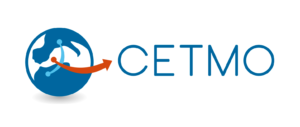International workshop
CETMO organizes an international workshop on digital transformation in urban and interurban passenger transport
- The workshop has marked the start of the collaboration between CETMO and the Islamic Development Bank
- The event was attended by 9 Mediterranean countries, as well as international organizations such as UNECE and the UIC
The Centre for Transportation Studies for the Western Mediterranean (CETMO) began promoting the Digitalization of Transport Observatory a few months ago. This initiative has a local branch, which was presented last September and its partners are the Department of Territory and Sustainability from the Government of Catalonia, the Ministry of Public Works from the Spain’s Government and the Association of Municipalities for Mobility and Urban Transport (AMTU), but it also has an international branch in which the Islamic Development Bank (IsDB) is the main partner.
As part of the collaboration with the Islamic Development Bank, CETMO has organized an international workshop on the impact of digital transformation on urban and interurban passenger transport.
This workshop, in line with one of the intrinsic features of CETMO such as transport cooperation, was attended by experts from 9 transport ministries in the Western Mediterranean. Specifically, they were: Spain, France, Italy, Libya, Malta, Morocco, Mauritania, Portugal and Tunisia. Apart from the assisting countries, the workshop also enjoyed the presence of major international organizations such as the United Nations Economic Commission for Europe (UNECE) and the International Rail Union (UIC), as well as the partners of the local initiative and the invited speakers.
Development of the workshop
The workshop on the impact of digital transformation on urban and interurban passenger transport was divided into 4 parts, in which presentations were made to transfer experiences, solutions and visions on the digitalization of transport to countries in this specific field:
- Institutional welcome and workshop introduction: the event began with the institutional welcome of CETMO’s CEO, Òscar Oliver. Afterwards the director of the Digitalization Transport Observatory explained the main features of the observatory, the following activities that it will address, as well as the willingness of having the Mediterranean countries support to the initiative.
- Digital platforms and mobility as a service: the second part of the workshop started with a presentation by IoMob’s CEO, Boyd Cohen, who explained the new mobility services solutions being developed by clients such as Renfe. Boyd emphasized that a single application could offer all the mobility services required by the user, as well as its aim to put the user at the center of mobility.
Later, Javier Santos, Movelia’s project manager, presented the future Movelia 2.0 platform, which aims to integrate all the means of mobility that really operate in the city and to support the different operators business processes.
To end this part of the workshop, AMTU’s CEO, Joan Prat, and project manager, Martí Jofre, explained the Flexitransport tool. This platform wants to go beyond the transport on demand and eliminate the pre-established schedules so that users can make a reservation the day before and tell the time when they need the mobility service. - Sensorisation and stations 4.0: the third part of the act started with the presentation of the Public Sector and Media Manager of Altran, Alex Santos, who explained the project for the station of the future of Railways of the Government of Catalonia. This Station 4.0 will be focused on space, accessibility, intermodality, connectivity and user analytics.
Finally, Maíta Fernández Armesto, project coordinator in the Mobility and Infrastructure Area of the Barcelona City Council, explained the Autonomous Ready system. The system consists of intelligent devices built into vehicles that allow the environment to be interpreted in order to protect vulnerable users of public space. Maíta said that Barcelona’s goal by 2022 is to reduce the number of dead and injured in the city by 50%. - Views from international institutions: the last part of the workshop featured representatives of highly relevant organizations in the transport sector globally such as UNECE and the UIC.
Walter Nissler, Head of Vehicle Regulations and Transport Innovations at UNECE, explained the different working groups on topics such as autonomous mobility and how they are working on a resolution on deploying highly automated vehicles and modifying the Convention on road traffic.
Thierry Béra, Chief Financial Officer of the UIC, explained the future mobile rail communication system (FRMCS). It is a worldwide telecommunication system designed by UIC with the cooperation of various agents in the railway sector, which aims to become a key enabler for the digitalization of rail transport.



